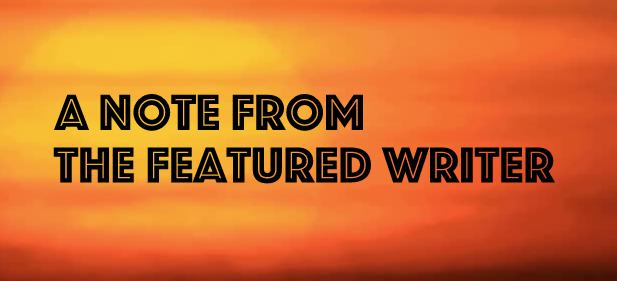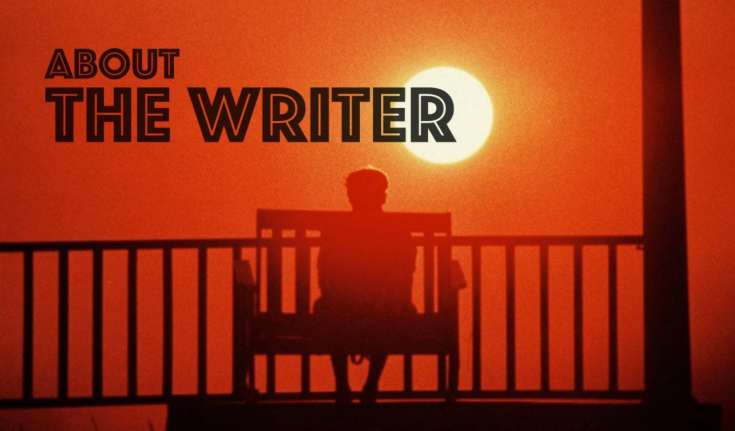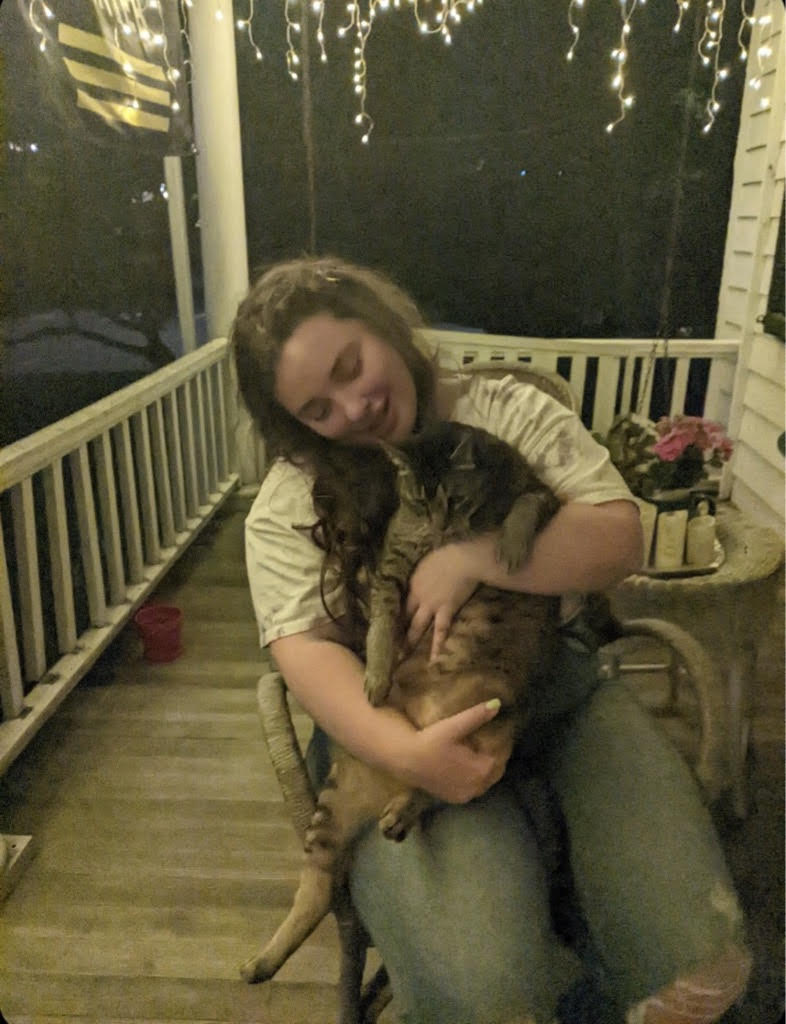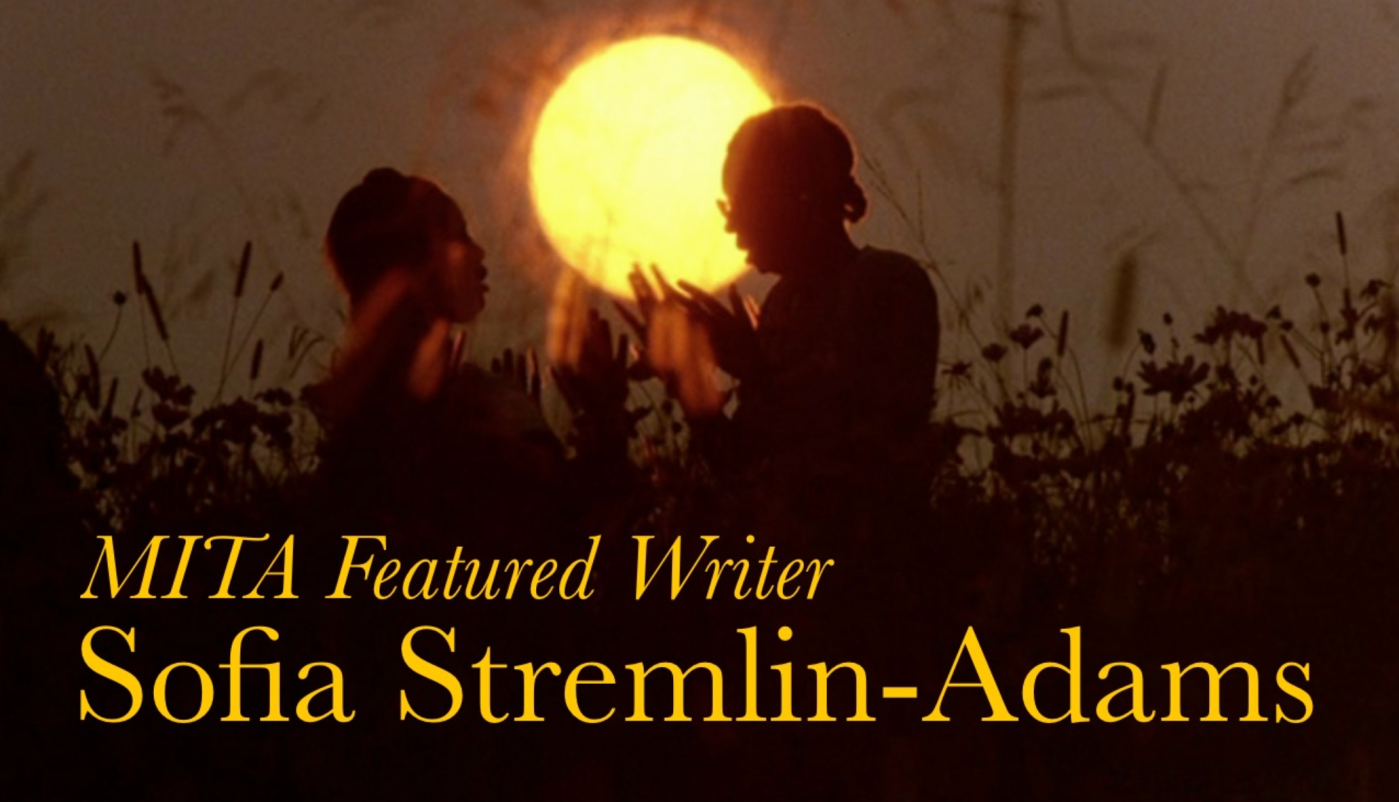Maed
At five years old I had an impressive resume: aspiring coven leader, professional frog wrangler, and avid Michael Jackson fan. Absent from my curious resume was the ability to spell my own name. Even though I would be repeating kindergarten in the fall as a result of my creative spelling, I was in no hurry to uncover what seemed like an impossible cipher.
I managed to bungle my first name the most. “Soife”, I proudly signed my name in purple marker on one of my magnificent drawings. My artwork still hangs in my grandmother’s living room. All the letters were present and grouped together, which to me seemed sufficient to decode the meaning.
Kindergarten two went swimmingly. I learned how to sneak pieces from a gingerbread house on display in front of the sixth grade hallway. After a few test runs, I even led a small gaggle to miscreants to join in the mischief. Most importantly, I’d discovered my deep love of onion rings, a passion that would be life-long. Despite my accomplishments, reading was largely unsuccessful. During reading practice, my parents would attempt to calm my restless body, but as much as I tried to hold Little Bear to my distracted eyes, some invisible force pushed me away. By six, I felt like there was a magnet in my chest and one in my book that opposed each other so strongly, that I could not sink myself into the ground deeply enough to stay put.
In Mrs.Leah’s third grade class we read a Cinderella picture book together as a class. Each person took a line and read it aloud. Each time it was my turn, the words clunked out of my mouth like tin cans tumbling off a moving truck. In Mrs.Leah’s class I heard myself, each scrawny, misplaced, syllable, punctuated by “umms” and “uhhs”, and silence. Mrs. Leah said nothing, but her pursed lips and cocked head sympathetically. Not long after, I found myself in a special reading class. Everyday at the same time a couple students would quietly shuffle out of Mrs. Leah’s class. We spent each short session gently mulling over sentences together and slowly turning over stones in a complicated code.
Throughout middle and high school, I felt the lesson I had learned in Mrs. Leah’s class fill my chest over and over again, each time becoming heavier and heavier. Even my successes felt fraught with shame. Once, in a highschool fiction class, my teacher arranged an entire class period to discuss a short story which I had submitted. In one of my rare bursts of energy and momentum, I had constructed a piece which I was quite proud of. I grinned sheepishly while my teacher praised my work and squirmed while other students complimented it. About halfway through the piece someone pointed out a typo, then another appeared, and another. The short story was littered with simple mistakes. A piece I had combed through lovingly felt so ugly to me now, that I could hardly lift my eyes up to the class. Not one student had been cruel in their critiques, but I was reminded that no amount of extensive reading and practice could remake me.
I recently found a green writing booklet with some cyrillic writing on the front. I’m no longer semi-fluent, so I couldn’t decipher its meaning, but I assumed I would have found lines of Russian practice within. It certainly wasn’t Russian, but it was hardly English either. Most words had a courteous red line through them with the correct spelling underneath. Each “maed” gently changed to “made” below. At this point I was seven or eight, and couldn’t spell to save my life. I desperately wanted to pity my younger self, and stain each page with tears from my literate eyes, but there was something in those pages that made me clear my eyes. Each jumbled word was deep set into the page. “I luyk to go to the pleygrawn,” I wrote half capitalized and turned around. Mrs. S corrected my sentence to “I like to go to the playground” below. I heard the right sounds, but translated them into the incorrect symbols. My notebook was littered with errors of course, but it was also filled with drawings and stars and hearts. It was a cheerful notebook despite my extensive list of spelling errors. I was listening closely to the world around me. I was learning slowly, but I made each mistake with complete confidence in myself.
Now, when I pick up a book for class or for pleasure, I see the letters from eyes that aren’t my own. I’ve learned to look through almost everyone’s eyes but mine. My impaired eyes seem to be connected to the nervous system of everyone who has ever pitied me and judged me. I’ve lost my own eyes, the ones that saw the world outside of codes and misprints. I miss when I could look into the mirror without trying to find the defect in my eyes.

Until fourth grade, I wasn’t meeting the benchmarks. I was always learning, but I was learning more like a horse trotting down a path–sometimes I needed to stop and chew on words a little longer. Many of my classmates marched through spelling tests and trotted by the benchmarks for their age. I wasn’t learning the right way, my teachers were concerned. I would have gotten to the end of my little green reading path eventually, and maybe my belly wouldn’t have been so empty at the end because shame is learned too.
So many children understand what it is to be removed. Some children are shuffled out of classrooms for forty five minutes a day, but many are kept to distant corners of their schools, completely isolated from their peers. Often, they are kept out of sight entirely. Children are taught that they cannot be accommodated without being separated. When kids are constantly removed from their peers, not only does it affect their self-confidence, it raises their peers to view them differently. Young students don’t see what it looks like to accommodate their peers that need it. They don’t understand that taking the time to treat others with patience, respect, and kindness helps their peers feel confident in themselves, and helps neurotypical students treat their own needs seriously.
People that are unseen, will be misunderstood. All students should be able to learn in a way that is both conducive to the way that they learn best, and that allows them to feel as though the way they learn is nothing to be ashamed of. Until each student is included and cared for, all students suffer. A person is whole until they’re told they are not.


Sofia is a Senior English major at Stony Brook University and plans on pursuing a masters in library science. She moved frequently growing up, and lived abroad in Kazakhstan for three years where she learned to speak Russian. For the last twelve years she’s lived on Long Island with her mother, younger sibling, two cats and two dogs. She works with people that have disabilities and aids them in being more independent. Sofia loves to collect trinkets to decorate her color-coded bookshelf and will never turn down an ornate box to house her collection.

Leave a comment